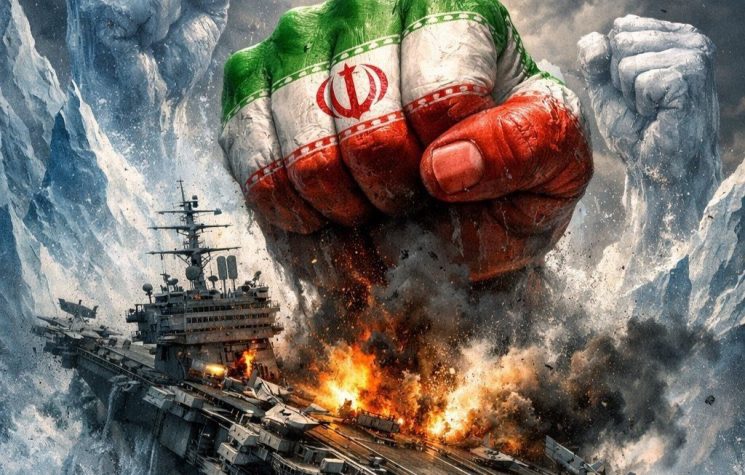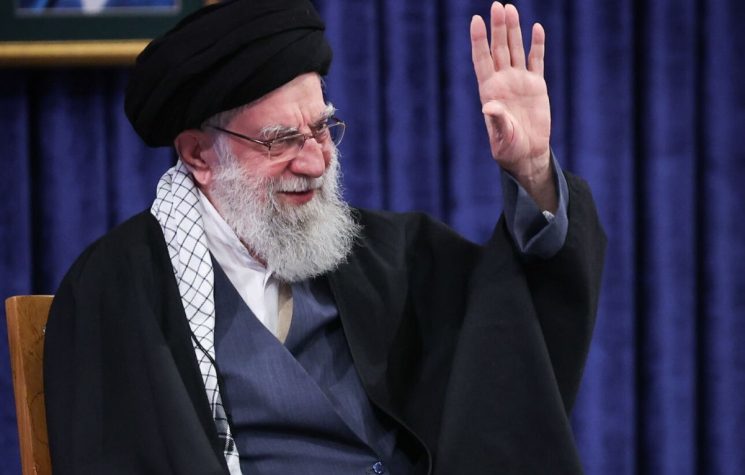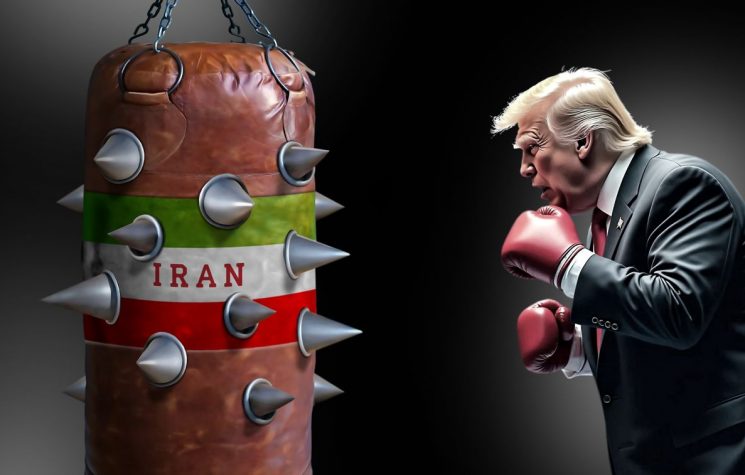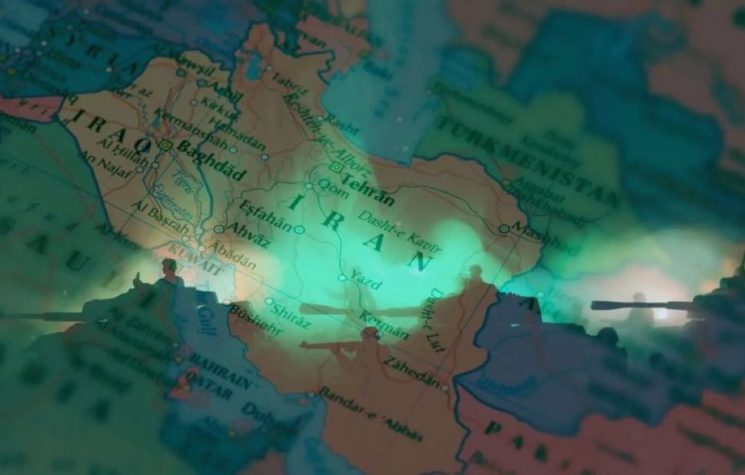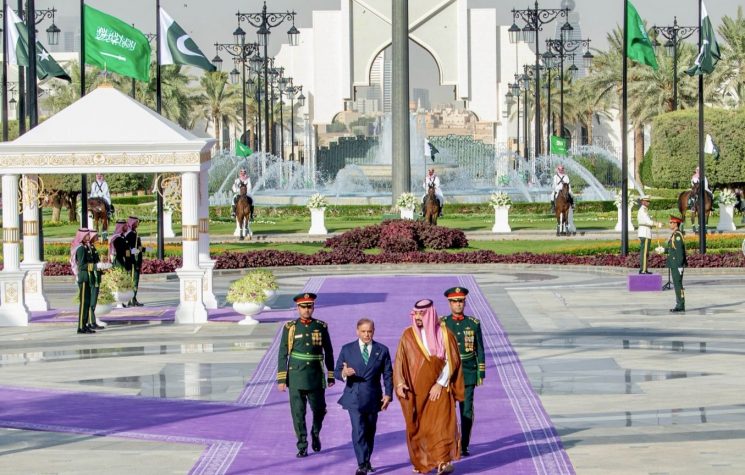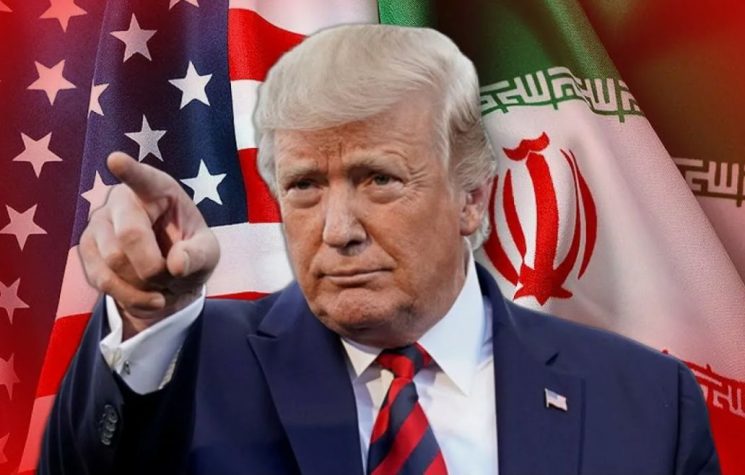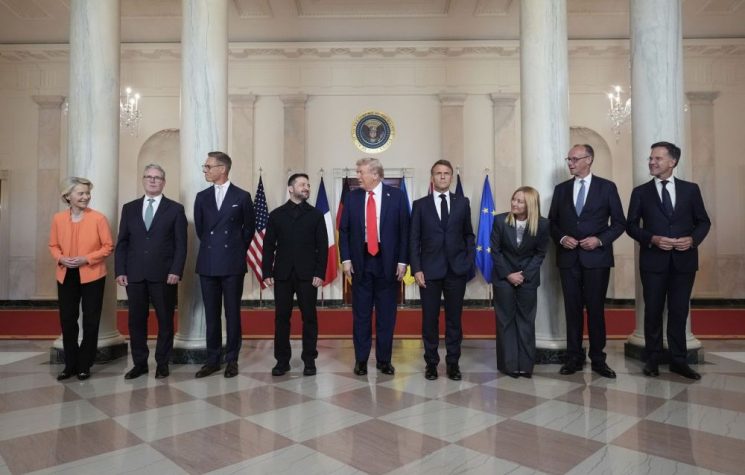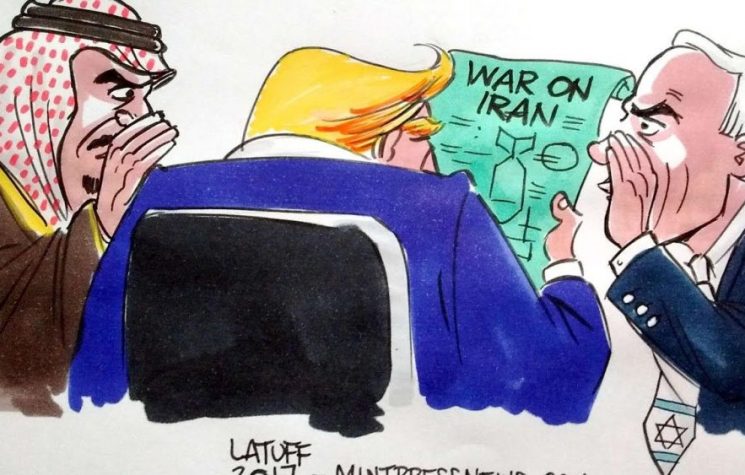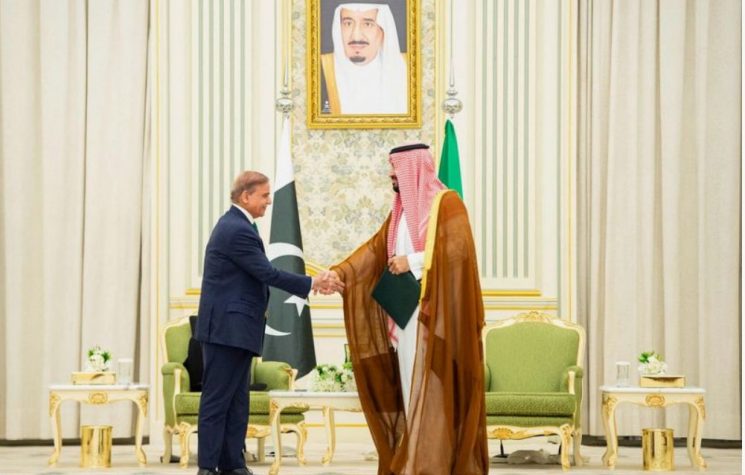The American style never disappoints. But remember: when cowboys challenge each other, only one survives.
Contact us: info@strategic-culture.su
We had no doubts
To date, no peacemaker has ever emerged from the United States of America. All leaders have waged war on someone, somewhere in the world, after having waged war at home for centuries. Nothing more, nothing less.
We therefore had no doubts about the outcome of Donald Trump’s meetings in Riyadh, held in the well-known climate of friendship that binds the Saudi world to the US, which has literally built Saudi Arabia banknote by banknote as a watchdog for the Middle East.
This is how Trump made a series of very significant statements, which need to be analyzed from several points of view.
The salient points were, in his own words:
- My dream is for Saudi Arabia to join the Abraham Accords.
- Saudi Arabia will join the Abraham Accords at its own pace.
- We want the Middle East to be known for trade, not chaos, and for exporting technology, not terrorism.
- A few days ago, we reached a historic ceasefire agreement between India and Pakistan. Millions of people could have died in the conflict between India and Pakistan.
- Secretary Rubio will participate in the Russia-Ukraine talks.
- I am here today not only to condemn the past chaos of Iran’s leaders, but to offer them a new path and a much better way toward a much better and more promising future.
- Iran can have a much brighter future, but we will never allow it to threaten America and our allies with terrorism or a nuclear attack.
- Iranian oil supplies will be reduced to zero and the country will go bankrupt if Tehran abandons the nuclear deal.
- We have launched more than 1,100 strikes against the Houthis.
- The people of Gaza deserve a better future.
Well, now that we’ve made the list, let’s read it all again.
In the words of the Potus, there is a trace of inconsistency in true American style, or rather, true cowboy style: ready to play the gentleman, only to fire a shot from his revolver when you least expect it.
The Abraham Accords and the “Houthi problem”
Trump’s intention to include Saudi Arabia in the Abraham Accords is a very interesting strategic move. The treaties have been signed, from September 15, 2020, to date, by five states, namely Israel, the United Arab Emirates, Bahrain, Sudan (with some reservations), and Morocco. Each of these countries has a major economic interest, because in fact it is a matter of protecting commercial interests, particularly oil, using the excuse of ‘international security’, which is seen as threatened by Iran’s influence in the region. Next on the list, after Saudi Arabia, are Oman, Qatar and Kuwait.
In this way, Trump is pursuing his MAGA policy by seeking to restore the commercial supremacy of the dollar through the world’s leading business. This is a decidedly “old style” move, because the oil route had already been traveled several times by previous occupants of the Oval Office, working successfully until the end of the 1990s, before beginning a slow decline at the beginning of this century, requiring a couple of wars to ensure at least a good exit.
It is indisputable that the US has long dominated the crude oil market, but things are no longer as they were, not only because of the de-dollarization that Trump found at the doorstep of his presidency, but also because trade routes have changed, or rather, the weight of specific routes has changed.
In all this, the real target of the Abraham Accords is the Axis of Resistance. Not only Iran, which acts as a strategic coordination center, but also Palestine itself. The betrayal of the Palestinian cause, already condemned by the Palestinian Authority and Hamas, is a moral charge that the Islamic countries of the Gulf have found themselves facing. Strengthening the Accords is an important move for Trump – and for the entire Western collective – in an attempt to limit the disintegration of interests in the region.
Iran remains one of the two main preoccupations of the Trump administration, along with China, with almost unconditional support from the entire West. During the Riyadh meeting, he even said, as we mentioned, that he hopes for a positive turn in relations, but “only on condition that.” This, once again, underscores American arrogance: either things are done their way, or else they resort to strong-arm tactics. Yet the US should have understood by now that Iran is not a state that bows to the blackmail and cowardice of a few Yankees with hats and guns. Iran has been there for millennia, not just two short centuries, and it does not need lessons in “civilization” from anyone.
In the context of the Axis, the Houthis in Yemen continue to be a thorn in the side of the Americans. A few days ago, Trump boasted of having reached an agreement with the Houthis, and now he is boasting about how that land has been massacred by American bombing. Could this be a coded message?
The longevity of the agreement, which is more of a politically unstable truce, could be very short. Trump just needs to secure a “replacement” in the management of tensions so that he can come out of the affair diplomatically clean and confirm himself, for the American public and Western leaders, as clean and a guarantor of Western interests. After all, as we know, it is better to retreat in style than to suffer a resounding defeat.
Syria arrives
Of course, Syria cannot be left out of all this, the new Syria, the Syria of the cutthroat democrats.
The blond-haired man thought it wise to praise the child beheader, complimenting him. It’s a bit like when your boss at work comes to tell you that you’ve done a good job.
At the heart of the meeting was the discussion of the lifting of sanctions. The international applause began, intent on celebrating something unclear, given that, realistically, the lifting of sanctions does not include:
- The end of the illegal occupation of Syrian territory by the United States or the plundering of Syrian oil
- It does not stop Israeli air strikes on Syrian territory
- It does not reverse the theft of entire factories by Turkey, taken across the border
- It does not reopen bombed spice factories, fertilizer industries or textile factories
- It does not allow Syria to trade, grow, or build freely without US supervision and Zionist approval
- It does not compensate Syria for thousands of tanks, aircraft, and missiles destroyed in a war it did not start
- It does not rebuild the Syrian army
- It does not address the problem of unemployment
- It does not restore the Syrian currency
- It will not reunite the Kurds or Druze with the Syrian national fabric.
So, it is clear that this choice has nothing to do with the Syrian people, while we can be sure that it will be a success for the wallet of terrorist head of state Al Julani and his loyalists.
The fact that the American president did not listen to Netanyahu is seen as another small crack in their relationship, after the different opinions that have already emerged on the approach to take towards Iran and the Houthi militias in Yemen.
The Syrian state news agency Sana showed videos and photos of people celebrating in Ummayad Square in Damascus after Trump’s announcement of the lifting of sanctions, in the hope that the country cut off from global finance (including credit cards) will be able to return to receiving the investment it desperately needs.
But this is just demagoguery, pure demagoguery in perfect American style.
After Syria, he visited Qatar, where defense and aviation agreements were signed. Speaking to local journalists, Trump briefly addressed the issue of indirect nuclear talks between the United States and Iran. He described the talks as an interesting situation and expressed his hope for the success of the diplomatic operation. In short, one day he points the finger, the next day he withdraws it. American schizophrenia is a strategy already familiar to the Middle East. Trump warned that Iran will never have a nuclear weapon, adding that his offer of an agreement will not last forever, even though the Islamic Republic has repeatedly stated that it is not pursuing a military nuclear program. And, to seal his good intentions, he imposed new sanctions as soon as he returned to America. Consistent, isn’t it?
Congratulations, Donald, well done. The American style never disappoints. But remember: when cowboys challenge each other, only one survives.













